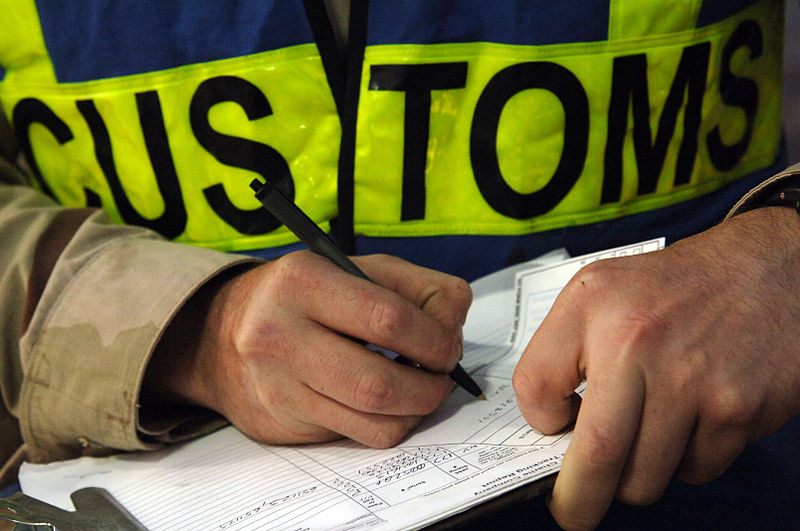In compliance with the requirements of the International Monetary Fund, Ukraine has split its previously combined fiscal service into separate tax and customs agencies. This is a step in the right direction, which should be followed by re-orienting the customs to serve businesses and promote cross-border trade.
Recent regional monitoring campaign in Ukraine organized by the Institute for Economic Research and Policy Consulting (IER) provides some insights on what specific actions should be taken to increase transparency and efficiency of customs clearance.
This year, Ukraine will reorganize the structure of its taxation and customs authorities, which for years had been merged into the single State Fiscal Service. It is the commitment Ukraine has made in the latest agreement with the International Monetary Fund under a new lending program and a step awaited by the country’s international trade actors and experts.
Previous research by the IERi showed that detaching customs and tax authorities would make it possible for customs not to concentrate mainly on fiscal functions, but to pay more attention to economic security and international cooperation. Plus, as a separate government entity, the customs should be more flexible to undergo reforms and meet the needs of businesses.
However, the separation itself is unlikely to impact day-to-day operations at the customs that remain problematic in Ukraine. In the IER’s annual national surveysii, exporters and importers repeatedly report facing bureaucracy, corruption and lack of transparency. Imperfect technical equipment and software at customs offices hold up clearance.
To address these problems, the IER has outlined key recommendations for Ukrainian customs that are based on the monitoring carried out in partnership with local non-government organizations.
In 2018, the IER worked together with NGOs in six regions of Ukraine to identify barriers for trade at customs and to develop and discuss ideas on improving the clearance procedures. Our local partners conducted a monitoring campaign in each region where they studied the opinions of all sides of the trade process – businesses, customs authorities, customs brokers, and representatives of chambers of commerce.
Each NGO assessed the performance of at least one regional customs office, identifying both strengths and weaknesses of its work using the in-depth interview methodology. They developed recommendations based on the findings of this research and conveyed them to local customs authorities.
The IER provided a methodology toolkit for in-depth interviews and supported partner NGOs throughout the campaign. At the end of this campaign, the IER summarized all the findings and recommendations by local NGOs and listed key changes for the customs authorities to make in order to ensure fair and transparent interaction with exporting and importing businesses in Ukraineiii.
One of these recommendations is to introduce the institute of the Authorized Economic Operator (AEO). It is Ukraine’s yet unfulfilled pledge under the Association Agreement with the EU. The AEO status would accelerate customs clearance for businesses that meet the established criteria, such as compliance with customs legislation, proven security and professional standards, and financial solvency.
This also would be coupled with less paperwork for the AEOs. In addition to saving time for reliable businesses, this mechanism will correspondingly decrease the scope of administrative duties for customs.
Currently, the AEO legislation in Ukraine has not yet emerged from the drafting and reworking process started in 2016.
Another important recommendation is to ensure impartial and transparent evaluation of goods. The businesses interviewed by local NGOs confirm the problem that was frequently brought up by respondents in the IER’s previous national surveys: unclear and discriminatory customs valuation. They say that the customs overstates the value of goods, which leads to increased taxes and fees. And businesses do not have access to the customs value database that should be used by the customs to determine this value.
Therefore, Ukrainian customs should open the access to a depersonalized customs database on exports and imports, establish clear procedures for assigning product classification codes, and step up the efforts to exchange information on customs value with other countries.
Regional monitoring also showed the need to address issues with staff and software at customs. On the one hand, the customs personnel is often underpaid, as are many civil servants in Ukraine. Increased salaries will likely attract better qualified workforce and reduce the odds of corruption.
But on the other hand, the public should be better enabled legally to control the work of the customs while individual customs officers should carry a personal liability for their illegal actions. Computer equipment and software should also be upgraded at customs offices as it will speed up the clearance and improve communication between customs authorities and other government agencies.
One more significant measure to take when reforming the customs is to introduce working post-clearance customs audit. This will help prevent illicit imports and facilitate customs clearance by letting customs officers spend less time inspecting the goods at the border.
Other recommendations for customs based on the results of the regional monitoring campaign include using scanning systems to avoid unloading goods, enhancing the operation of the Customs Register of Intellectual Property Right, and further improving the single window mechanism at customs.
Some of these steps are rather technical in nature. With good planning and resource allocation, they can be implemented over a short time. Others require deeper structural changes.
In any case, success in transforming customs in Ukraine is contingent on thinking about the customs as a business-oriented service instead of another taxation arm.
IER Senior Research Associate Andriy Butin co-authored the analytical report “Public Monitoring of Customs Authorities Performance: Conclusions and Recommendations”
i Policy paper “Ukrainian and International Experience of Structuring Customs: Recommendations for Modern Ukraine”, the Institute for Economic Research and Policy Consulting, 2017 http://tfd.ier.com.ua/wordpress/wp-content/uploads/2015/05/TFD-PP-%D0%A3%D0%BA%D1%80_block_final_print.pdf (in Ukrainian)
ii For the latest survey results, see “Trade Facilitation in Ukraine: Businesses’ Assessment and Expectations 2017/2018” http://www.ier.com.ua/files/Public_events/2018/TFD_III_Presentation/TFD_III_2017-2018_report.pdf (in Ukrainian)
iii See the analytical report “Public Monitoring of Customs Authorities Performance: Conclusions and Recommendations” for detailed information on the campaign and the full list of recommendations http://tfd.ier.com.ua/wordpress/wp-content/uploads/2015/05/eng_2018_TFD_pp_Advocacy_campaign_%D0%BE%D0%BA.pdf (in English)



